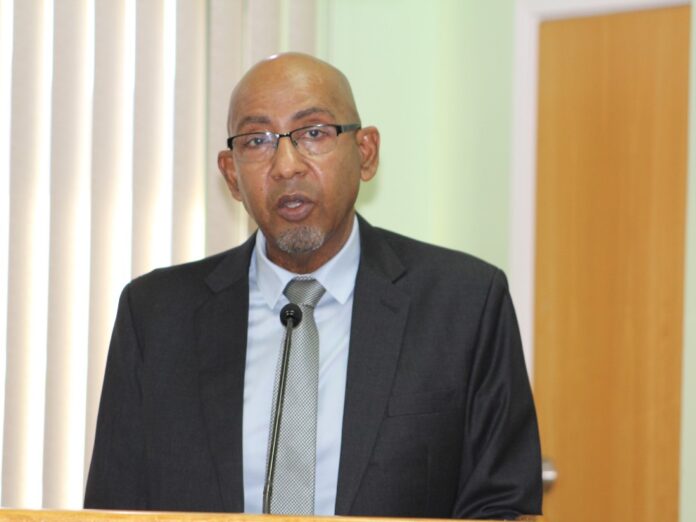
Every year on the 14th of November, Dominica joins the region and the rest of the world in observing World Diabetes Day. This year the theme is “Access to Diabetes Care: If Not Now, When?”
It is an opportunity to raise awareness on diabetes mellitus as a growing public health issue and to highlight the need to increase the access to diabetes care and support, to better manage and prevent complication, and to improve the quality of life of people living with diabetes.
World Diabetes Day this year marks one hundred (100) years since the incredible discovery of insulin, a treatment that saved millions of lives around the world. It is one of the 20th century’s greatest medical breakthroughs and the only treatment use effectively to treat type 1 diabetes.
Diabetes can be prevented and easily managed by adopting a healthy lifestyle to manage blood glucose. This can be achieved through regular physical activities, a healthy and balanced diet, getting regular health check-ups, compliance to medication regimens, tobacco cessation, reducing alcohol consumption, and getting diabetes self-management education and support.
In Dominica, there are approximately 7,000 people living with Diabetes. It is the 5th leading cause of death and disability among Dominicans. Most of these cases are type 2 diabetes, which is largely preventable by addressing the modifiable risk factors through access to care that provides the education, resources, and environment to live a healthy lifestyle.
Studies have shown that there are “more than 460 million people living with diabetes where 1 in 2 people are currently undiagnosed”. The ongoing care, support, early diagnosis, and treatment are key to preventing the complications of diabetes and achieving healthy outcomes.
The effect of the COVID- 19 pandemic has also created many challenges in health care, especially in the continuity of essential services.
These are significant issues for people living with diabetes and barriers to accessing quality care.
In many countries, the access to care provided by the primary health care services to the people living with diabetes, helping them to stay healthy and avoid more costly care, medication, and daily monitoring which can consume half of their average disposable income is challenging. Access to care has been shown to have a substantial effect on improving health outcomes for people with diabetes. It is therefore important as a government that ongoing diabetes services within our primary health care system remain accessible to all people with diabetes to reduce the emotional impact of the disease that can result in a negative quality of life.
The Government of Dominica through the Ministry of Health has constructed several Health and Wellness Centres around the island that are accessible to provide quality care and services to people leaving with diabetes, with special emphasis on foot care, diabetic retinopathy screening; nutrition, exercise, treatment compliance, and availability and special non-communicable (NCDs) clinic.
We have developed and implemented a number of healthy public policies which impact diabetes care and access at all levels to include The NCD Policy and Action plan, School Nutrition policy, Adolescent and Youth Policy, Active Aging Policy, Review of Diabetes and Hypertension Manual and soon to be implemented the HEARTS initiative in Primary Healthcare.
The Implementation of a 10% excise tax on Sugar-Sweetened Beverages in 2015 to deter demand additional 5 million dollars allocation for drugs procurement with Diabetic drugs being a priority.
The Ministry has strengthened its partnership with several non-governmental agencies to include the Dominica diabetic association (DOMDA), in moving forward the agenda of diabetes prevention and control. Also, Empowerment through education and self-management training of community groups and the population, through the adoption of the Stanford Chronic Self-Management Program, Educational Campaigns, training of health care workers ( Diabetes in Disasters, foot care ), Nutritional training, counseling and meal planning, and other risk educational activities addressing diabetes risk components and lastly, Development of other Information Education Communication (IECs) materials targeting various vulnerable and high-risk groups to include: development of a diabetic booklet for primary school students between the ages of 5 to 12 years, to create an awareness to children about diabetes prevention and control.
This year the Ministry of Health will be embarking on activities focused on educating the public. This will be conducted during the month in observance of World Diabetes Day through:
- social media platforms.
- Radio programs.
- Zoom educational sessions and
- Roundtable Discussion.
The Ministry of Health urges all organizations, institutions, and partners to empower groups and individuals to take all the necessary preventive measures to reduce their risks associated with diabetes.
Today we rally with you in the fight against NCDs, if not now, when?

